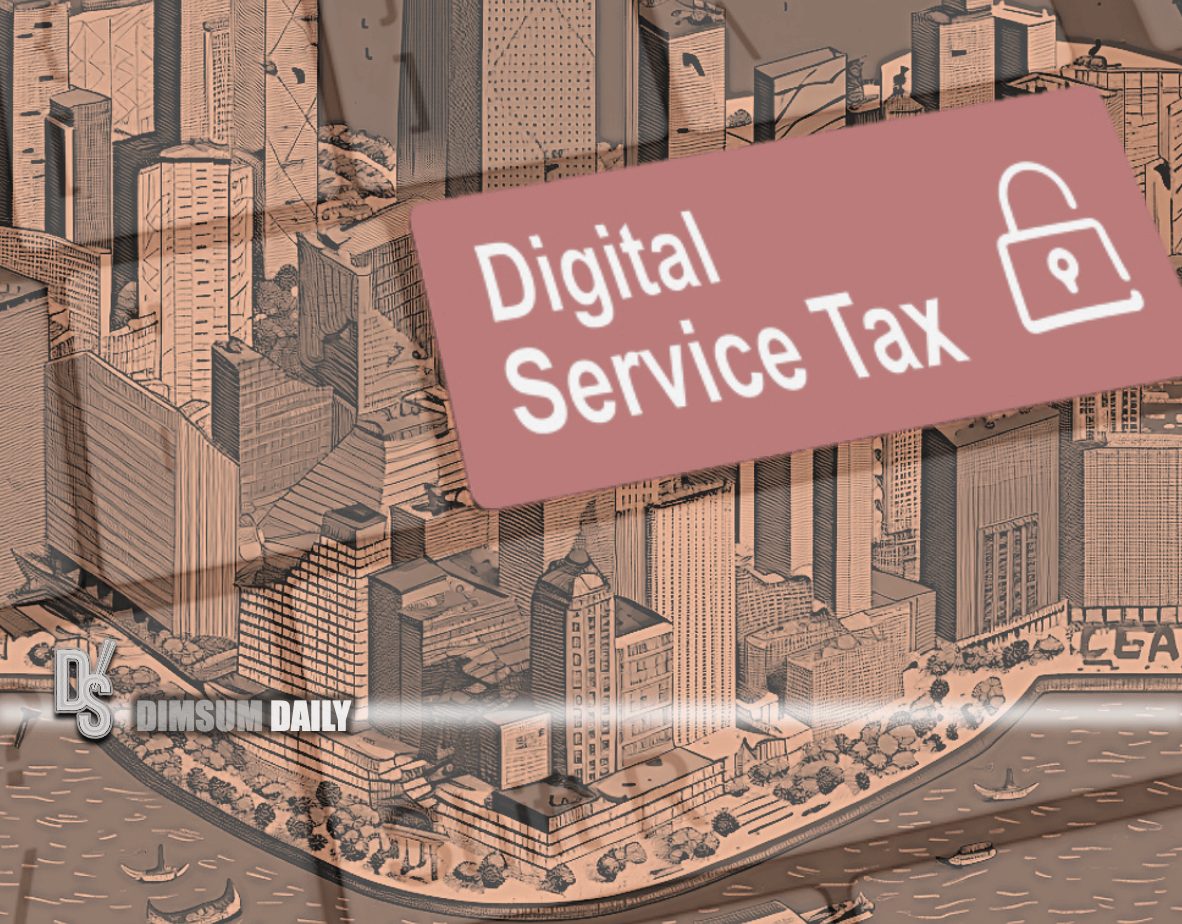23rd February 2025 – (Hong Kong) The Hong Kong government is set to unveil its latest budget next week, and the issue of introducing a digital services tax (DST) on non-local digital service providers has sparked a heated debate. Patrick Yeung Wai-tim, the President of the Hong Kong General Chamber of Commerce (HKGCC), has suggested that such a tax could be a potential revenue stream to address the city’s fiscal deficit.
During a recent television appearance, Yeung proposed applying a consumption tax, akin to the gambling tax, on streaming platforms and game downloads. He suggested a rate ranging from 3% to 5%, which could potentially generate an additional HK$3 billion in annual revenue for the government’s coffers.
Yeung expressed optimism about Hong Kong’s economic resilience, citing the strong performance of the market and stock exchange since the beginning of the year. Despite facing challenges from geopolitical uncertainties and tariffs, he anticipates that the economy will improve in 2025. Yeung highlighted that many countries have already levied similar digital services taxes on Hong Kong companies, and introducing such a tax could create a fairer competitive landscape. He argued that streamlining the civil service structure, rather than merely reducing salaries, would be a more effective cost-cutting measure. Yeung emphasized that the government should conduct a comprehensive review of its staffing needs.
The HKGCC’s proposal comes as the government grapples with a fiscal deficit challenge. During the pandemic, substantial investments were made in public health and support for small and medium-sized enterprises, which significantly depleted the government’s reserves. Yeung suggested that any government borrowing should focus on future investments to enhance infrastructure for the new economy, such as developments in the Northern Metropolis area.
The HKGCC’s suggestion to tax non-local digital service suppliers has generated widespread discussion. Wayne Lau, the chairman of the chamber’s taxation committee, stated that non-local digital service providers earned approximately HK$3.5 billion in Hong Kong last year. A 5% tax on these providers could yield nearly HK$1.4 billion (US$180 million) in revenue.
Lau emphasised that taxing overseas digital services is a practice that has been increasingly adopted worldwide since 2015, with more than 100 countries, including the United Kingdom, New Zealand, and Canada, implementing similar measures. According to the HKGCC’s proposal, the tax could be imposed on certain activities from next year, such as in-app purchases, game downloads, and advertisements.
As countries and regions continue their digital transformation, there will be more businesses in this sector, indicating that the proposed tax could increase fiscal revenues for Hong Kong in future years, according to Lau. However, the introduction of a digital services tax has drawn criticism from various quarters. The technology sector has raised concerns about the potential impact on consumers, who may ultimately bear the cost of the tax through increased prices for digital services.
Critics argue that imposing additional taxes on non-local digital service providers could undermine Hong Kong’s competitiveness as a hub for innovation and technology. Some experts have cautioned that such a move could deter digital companies from investing in the city, potentially hampering the growth of the technology sector.
Moreover, the proposal has reignited discussions about the broader issue of fiscal prudence and government spending. While the HKGCC has urged the government to consolidate civil service roles to reduce redundancies and save costs, there have been calls for more comprehensive reforms to address the fiscal deficit.
Critics have argued that introducing a digital services tax may be a short-term solution that fails to address the underlying structural issues contributing to the government’s financial challenges. While the HKGCC’s proposal aims to generate additional revenue for the government, it is crucial to weigh the potential benefits against the potential drawbacks and ensure that any policy decisions are made with careful consideration of the long-term interests of Hong Kong’s economy and society.


